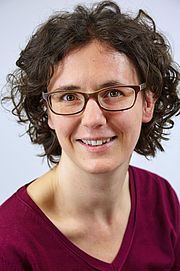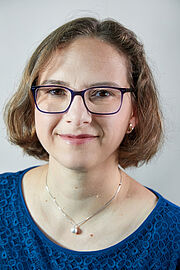18 international matches, more than 300 players and team members, three venues and over 2,000 bottles of wine for tasting – that’s the summary of the UENFW VINOEURO 2022 which took place in the Czech Republic. For the first time, the agenda also featured an expert conference and a student program. The Weinelf – the German national team – was hoping to repeat its victory from Switzerland 2014 when the team won the title (3:2 against Hungary), which was a highlight for the Weinelf-Deutschland e.V., founded in 2005 in Ingelheim. Further milestones in the history of the German national team of winemakers include matches against strong teams such as Eintracht Frankfurt and Weisweiler-Elf from Mönchengladbach, the award of the German Wine Critics Prize 2018, a meeting with the former German Chancellor Angela Merkel in Berlin as well as a visit to Pope Francis in Rome. The Weinelf is also a much-appreciated guest at the gala to award the German Football Culture Prize in Nuremberg.
The idea to bring together wine and football at an international level came from Dr. Franz Josef Jung, former Federal Minister of Defense and son of a winemaker, and his Italian friend Luigi Brunetti who used to run a famous restaurant in Neu-Isenburg. In 2011, the first official European Championship took place in Budapest, Hungary, with teams from Hungary, Austria, Switzerland, Italy and Germany. Slovenia, Portugal and the Czech Republic followed soon. To give the idea a professional dimension, a joint umbrella organization was established in 2018. Based in Geisenheim, the UENFW, Union of European national football teams of winemakers e.V. takes care of organizational aspects. At its heart is a transparent player database listing almost 300 football playing winegrowers, which can be accessed by anyone who is interested in football (www.uenfw.org), and the door is wide open for new member countries and partners.
The first official UENFW VINOEURO took place from June 1 to June 4, 2022 in the Czech Republic. In cooperation with UENFW officials, the Czech organizers re-defined the core values and extended the program to include expert conferences, especially for young winegrowers. As a result, the European cultural assets of football, wine and education are now anchored in the mission statement, and with the OIV – the International Organization of Vine and Wine – the UENFW has found a strong partner. From each country, a renowned national university, e.g. Hochschule Geisenheim University, or an educational institution, e.g. Wädenswil, is involved to support the expert conference VINO EDUCA, which was organized for the first time, and the student exchange.
The European Championship was supposed to take place in 2020 but had to be rescheduled twice due to the pandemic. The German team, joined by some new players, played a good tournament. In the group phase, they defeated Switzerland 6:1 and played 0:0 against Italy. The match against Slovenia ended 1:1. After a 0:0 draw against the winner of the other group, the Czech Republic, the team lost in the subsequent penalty shootout and missed out on a place in the final. The match for third place seemed almost lost at half-time but in the second half, the team was able to turn the situation when Mario Görgen scored 4 times and the match ended 4:2. But coach Friedel Müller also deserves some credit for his good instincts because he decided to move the former defense player into goal-scoring position.
The Czech Republic is the new European Champion of Winemakers. In the final, the host country defeated Slovenia 6:1 in Uherské Hradiště, home of the former Kaiserslautern player Miroslav Kadlec (1990 bis 1998). In the final ceremony, the organizers announced that either Portugal or Italy will host the next tournament in 2024.
The tournament was complemented by a presentation of wines from participating wine-growing nations. More than 2,000 bottles were provided for the tastings and the South Moravian cuisine treated the guests to a selection of typical local dishes.
In addition to local events, excursions to the surrounding wineries were also on the agenda. A highlight was the trip to the modern Lahofer winery in the hills of Znojmo.
Also on the agenda: sharing knowledge (VINO EDUCA https://www.uenfw.org/vino-educa)
An international tournament of winemakers who come together to play football and taste wines is also a great opportunity to share knowledge and exchange experience – that’s how the idea of VINO EDUCA was born. The international conference brought together experts from various European countries during the Championship. Supported by leading European partner universities and institutions dedicated to viticulture, the conference took place in the historic castle in Mikulov. The Czech Minister of Health Vlastimil Válek was also present. The agenda featured presentations of top-class international speakers on the following topics:
- The positive aspect of moderate wine consumption from a medical point of view
- The importance of viticulture for the national economy, international trade and foreign relations.
- The benefits of grape cultivation for the soil as well as responsible forms of agriculture.
- The role of viticulture in a historic context, taking into account culture and traditions.
The VINOEURO also included a program for viticulture and enology students with participants from Lednice, Geisenheim and Pisa. Various excursions complemented the program and were a great opportunity to exchange experience and establish new professional contacts.
In short, the VINOEURO showed that wine, football and education a shared European cultural assets which bring together people in friendship. We hope that a Ukrainian team will join the tournament in the future and that we can play a friendly match in Russia!
(Text: Rudolf Knoll, Robert Lönarz, Weinfeder Journal)





![[Translate to English:] [Translate to English:]](/fileadmin/_processed_/d/e/csm_EM-3.Tag-65__112993__Web_1920px__51aa02c807.jpg)

![[Translate to English:] [Translate to English:]](/fileadmin/_processed_/e/0/csm_EM-3.Tag-29__112986__Web_1920px__fe2112367f.jpg)
![[Translate to English:] [Translate to English:]](/fileadmin/_processed_/2/7/csm_EM-3.Tag-28__112984__Web_1920px__81c680f335.jpg)
![[Translate to English:] [Translate to English:]](/fileadmin/_processed_/b/2/csm_EM-3.Tag-56__112944__Web_1920px__33006d40cd.jpg)
![[Translate to English:] [Translate to English:]](/fileadmin/_processed_/4/3/csm_EM-3.Tag-27__112955__Web_1920px__7848b38709.jpg)
![[Translate to English:] [Translate to English:]](/fileadmin/_processed_/b/e/csm_EM-2.Tag-12__112851__Web_1920px__10ebc5e364.jpg)
![[Translate to English:] [Translate to English:]](/fileadmin/_processed_/a/3/csm_EM-4.Tag-50__113038__Web_1920px__919db3fa5d.jpg)
![[Translate to English:] [Translate to English:]](/fileadmin/_processed_/f/3/csm_EM-3.Tag-19__112954__Web_1920px__bfc9dcb803.jpg)
![[Translate to English:] [Translate to English:]](/fileadmin/_processed_/1/4/csm_EM-3.Tag-74__112999__Web_1920px__1fc04ab181.jpg)
![[Translate to English:] [Translate to English:]](/fileadmin/_processed_/f/b/csm_EM-4.Tag-13__113057__Web_1920px__af504187fc.jpg)















